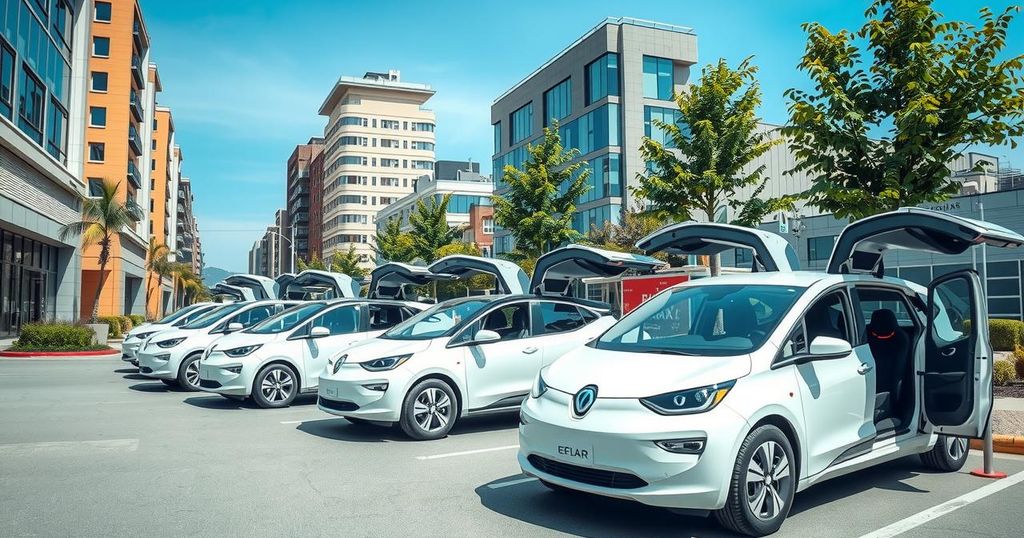China’s Electric Vehicle Makers Pursue Global Market Expansion Strategies

Chinese EV makers are expanding internationally while facing competition at home. Companies like BYD and Great Wall are utilizing innovative technologies and production scale. Chery and Geely are also focusing on collaborative efforts and strategic acquisitions to increase market presence. The ongoing evolution in the sector underscores the importance of adaptability and global reach for sustained growth.
China’s rapidly expanding electric vehicle (EV) sector features key players such as BYD, Great Wall, Geely, and Chery, all aiming to increase their global presence with competitive offerings. Notably, these companies differ from state-owned giants as they adapt to survive within China’s competitive landscape. The diversity in their strategies underscores the importance of scale, innovation, and technological alliances in their quest for success abroad.
Great Wall Motors, achieving over 80% increase in net profit despite a 15% decrease in domestic sales, is focusing on international sales. The company operates factories in several countries, including a former GM factory in Thailand and a former Mercedes-Benz plant in Brazil. Their aim is to penetrate markets currently dominated by established brands such as Toyota, offering competitive models like the hybrid GWM Poer and the Haval H6.
Chery Automobile, known for exporting over 15 million vehicles, is expanding its production capabilities overseas, with recent factories established in Russia and Spain. The company projected sales of 3 million vehicles overseas by 2025, and is actively pursuing opportunities in emerging markets while maintaining collaborations with tech partners like Huawei and Alibaba. They continue to emphasize their traditional gasoline vehicles despite their growing EV line.
BYD has taken a significant lead in the Chinese EV landscape, selling 3.52 million vehicles last year, showcasing a growth of 28%. Their innovation in plug-in hybrids and potential ultra-fast charging stations significantly enhances their market competitiveness. Models such as the affordable Seagull series cater to varying consumer preferences, positioning BYD as a formidable rival against Tesla.
Geely, another prominent player, began as a refrigerator manufacturer and has executed strategic acquisitions, including Volvo and Lotus. The introduction of the Geely EX5 SUV in international markets like Australia highlights their expansion efforts. The company also co-owns Polestar and Zeekr, further diversifying its product range in EVs, although it has encountered challenges in the U.S. market.
Beyond these major players, Wuling, a joint venture between SAIC Motor, GM, and Guangxi Auto, also holds significant market share in China, with sales exceeding 673,000 units. Meanwhile, brands like Nio, Xpeng, Li Auto, and Leap Motor are contributing to a vibrant but competitive landscape, while state-owned enterprises like Dongfeng and Changan also look to capture global market share amid rising competition.
China’s electric vehicle manufacturers are strategically pursuing global expansion amidst intense competition in the domestic market. Key players like BYD, Great Wall, Chery, and Geely are leveraging innovative strategies, technological partnerships, and the production scale necessary for competing internationally. As they enhance their global footprint, these companies showcase a commitment to adapting their offerings—allowing them to cater to the diverse preferences and demands of international consumers.
Original Source: www.usnews.com




